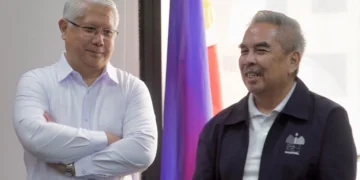On January 20, 2025, President Trump signed a slew of executive orders on Monday aimed at delivering on his long-promised crackdown on illegal border crossings and immigration more broadly. He also declared a national emergency at the U.S.-Mexico border, deploying U.S. Armed Forces to the region.
He intends to end birthright citizenship by issuing an executive action that would reinterpret the 14th Amendment that grants citizenship to all people born on domestic soil — a move that drew swift legal challenges, including from Democratic attorneys general.
Trump also moved to:
- Resume construction of the border wall
- End so-called catch and release
- Temporarily suspend refugee resettlement from certain countries for at least four months
- Restart the “Remain in Mexico” policy of his first term
- Restrict asylum using 212(f) of the Immigration and Nationality Act The INA 212(f) is a law that allows the president to stop the entry of aliens for security and other reasons.
- Designate drug cartels and gangs as foreign terrorist organizations and invoke the Alien Enemies Act of 1798 to remove them — or, as he put it in his inaugural address, “eliminate the presence of all foreign gangs and criminal networks bringing devastating crime to U.S. soil”
- Direct the incoming attorney general to seek capital punishment for the murder of law enforcement and capital crimes committed by undocumented immigrants
Question: Can a President make executive orders that are contrary to existing laws?
Answer: A president’s executive order cannot be contradictory to any law passed by Congress. It can’t replace or contravene statutes enacted by Congress, it can only ‘fill in the gaps,'” wrote Susan Sullivan Lagon of the Government Affairs Institute at Georgetown University.
Question: Will birthright citizenship be eliminated?
Answer: Birthright citizenship is in U.S. Constitution under the Fourteenth Amendment stating that all persons born in the United States are citizens of the United States. Immediately after Trump signed the executive order on this matter, 18 states and ACLU filed cases in court opposing the order. It will take an action in Congress to make any amendment.
Question: How far can a president change asylum processing?
Answer: The President can only make some changes in the procedure of processing asylum cases. However, since asylum is an existing law, any change in asylum law will need Congressional approval. Using INA Sec. 212 (f) to restrict applicants who are security threats to the United States is allowed by law for president to decide.
Note: This is not legal advice.
IMPORTANT ANNOUNCEMENT
- PETITION FOR CAREGIVERS
Our Law Firm entered into agreement with Care Home Facilities in the U.S. to process applicants for Caregivers in the US
You may qualify if you six months experience as Caregivers.
Applicants Inside the United States or in the Philippines or other countries may qualify.
We also process Bankruptcy cases.
- Bankruptcy will actually improve your credit within one year because your unsecured debts are discharged.
- If you have immigration problems the Law Offices of Crispin C. Lozano can help you find a solution before your problem gets worse, which could lead to deportation and family separation.
Chris Caday Lozano, Esq. is an active member of the State Bar of California, the American Immigration Lawyers Association and San Francisco Trial Lawyers. He has practiced immigration law, bankruptcy, and income tax representation since June 1999. His contact phone is 1-877-456-9266, email: info@CCLlaw.net Website: www.crispinlozanolaw.com/ with offices in Hayward and Cerritos, CA.


























